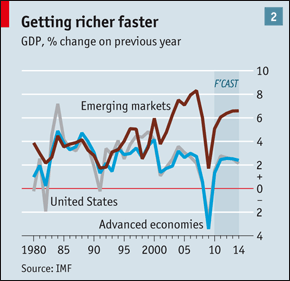 Den store Tony Judt (1948-2010) i et essay fra sidste år om de europæiske socialdemokratiers historiske udfordringer i disse år.
Den store Tony Judt (1948-2010) i et essay fra sidste år om de europæiske socialdemokratiers historiske udfordringer i disse år.
Historikeren Judt, af Timothy Garton Ash helt rigtigt kaldt en spectateur engagé (en politisk engageret, men uafhængig og kritisk intellektuel), trækker tråde helt tilbage til økonomerne John Maynard Keynes og Friedrich Hayek og frem til de europæiske socialdemokratiers krise i disse år.
Undervejs diskuterer Judt bl.a. effektivitetsmyten om privatiseringen af offentlige institutioner, den irrationelle amerikanske frygt for enhver form for statsindgreb i samfundet og det, Judt betegner som den økonomiske diskurs’ fuldstændige overtagelse af den måde, vi taler om vores samfund på. Istedet for at tale om, hvorvidt noget er ‘godt’ eller ‘dårligt’, taler vi istedet om hvorvidt det er ‘effektivt’ eller ‘nytterigt’. Og det er et tab, mener Judt, fordi det udelukker os fra en række helt centrale spørgsmål:
What precisely is it that we find abhorrent in financial capitalism, or “commercial society” as the eighteenth century had it? What do we find instinctively amiss in our present arrangements and what can we do about them? What do we find unfair? What is it that offends our sense of propriety when faced with unrestrained lobbying by the wealthy at the expense of everyone else? What have we lost?
De spørgsmål må konfronteres i den tid, vi nu bevæger os ud i. En situation, vi har set magen til før, argumenterer Judt:
We are entering, I believe, a new age of insecurity. The last such era, memorably analyzed by Keynes in ‘The Economic Consequences of the Peace’ (1919), followed decades of prosperity and progress and a dramatic increase in the internationalization of life: “globalization” in all but name. As Keynes describes it, the commercial economy had spread around the world. Trade and communication were accelerating at an unprecedented rate. Before 1914, it was widely asserted that the logic of peaceful economic exchange would triumph over national self-interest. No one expected all this to come to an abrupt end. But it did.
We too have lived through an era of stability, certainty, and the illusion of indefinite economic improvement. But all that is now behind us. For the foreseeable future we shall be as economically insecure as we are culturally uncertain. We are assuredly less confident of our collective purposes, our environmental well-being, or our personal safety than at any time since World WarII. We have no idea what sort of world our children will inherit, but we can no longer delude ourselves into supposing that it must resemble our own in reassuring ways.
We must revisit the ways in which our grandparents’ generation responded to comparable challenges and threats. Social democracy in Europe, the New Deal, and the Great Society here in the US were explicit responses to the insecurities and inequities of the age. Few in the West are old enough to know just what it means to watch our world collapse. We find it hard to conceive of a complete breakdown of liberal institutions, an utter disintegration of the democratic consensus. But it was just such a breakdown that elicited the Keynes–Hayek debate and from which the Keynesian consensus and the social democratic compromise were born: the consensus and the compromise in which we grew up and whose appeal has been obscured by its very success.
If social democracy has a future, it will be as a social democracy of fear. Rather than seeking to restore a language of optimistic progress, we should begin by reacquainting ourselves with the recent past. The first task of radical dissenters today is to remind their audience of the achievements of the twentieth century, along with the likely consequences of our heedless rush to dismantle them.
The left, to be quite blunt about it, has something to conserve. It is the right that has inherited the ambitious modernist urge to destroy and innovate in the name of a universal project. Social democrats, characteristically modest in style and ambition, need to speak more assertively of past gains. The rise of the social service state, the century-long construction of a public sector whose goods and services illustrate and promote our collective identity and common purposes, the institution of welfare as a matter of right and its provision as a social duty: these were no mean accomplishments.
That these accomplishments were no more than partial should not trouble us. If we have learned nothing else from the twentieth century, we should at least have grasped that the more perfect the answer, the more terrifying its consequences. Imperfect improvements upon unsatisfactory circumstances are the best that we can hope for, and probably all we should seek. Others have spent the last three decades methodically unraveling and destabilizing those same improvements: this should make us much angrier than we are. It ought also to worry us, if only on prudential grounds: Why have we been in such a hurry to tear down the dikes laboriously set in place by our predecessors? Are we so sure that there are no floods to come?
Tænk hvis der fandtes politikere, der intellektuelt var i stand til at formulere den slags tanker og ideer.










